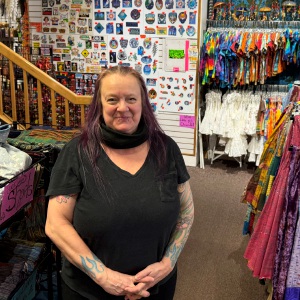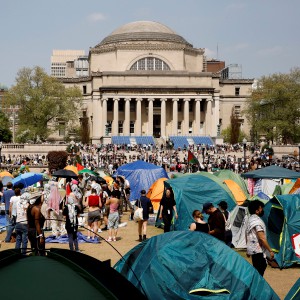Guest columnist Will Dempsey: Sanctuary policies can help protect trans people

STAFF FILE PHOTO STAFF FILE PHOTO
| Published: 03-02-2025 6:52 PM |
The city of Worcester’s recent decision to give sanctuary city status for the transgender community, while largely symbolic, is critically important. Following Northampton’s designation late last year, it represents a local government’s commitment to standing with and protecting the transgender community. This is especially vital in a time when transgender individuals face increasing threats to their safety.
The number of trans people murdered in the U.S. nearly doubled between 2017 and 2021, a rise that coincided with increased anti-trans rhetoric and policies, particularly during the Trump administration.
Specifically, Black trans women have been disproportionately affected. While Black individuals make up less than one-fifth of the transgender population, they account for nearly three-quarters of known victims of anti-trans violence. Given this reality, a sanctuary designation should signal a meaningful commitment to protecting transgender residents, including addressing systemic issues within law enforcement.
Historically, both the LGBTQIA+ and Black communities have experienced harm at the hands of police. If a sanctuary designation is to be more than just a statement, it must come with actionable steps toward safety, justice and rebuilding trust. Whether the trans community is widely aware of these votes in Northampton and Worcester varies, but for those who are, such designations can provide a sense of validation, security and hope — especially if they are backed by real policy changes.
While only a handful of cities across the U.S. have declared themselves transgender sanctuary cities, this is a movement that needs to grow. As a provider working with transgender individuals, I see firsthand the fear and uncertainty many face — simply for existing or for trying to access basic health care.
There have already been discussions about criminalizing providers who support transgender youth, and we have seen violent threats, including the bomb threats at Boston’s youth gender clinic a few years ago.
These designations send a strong message: that a city stands with trans people and the people who support them. They signal that local governments will not comply with oppressive, transphobic policies.
With Donald Trump openly advocating for a society that erases trans identities, it is crucial for cities to take a stand. Historically, civil rights movements — whether for women’s suffrage, Black rights, or LGBTQ+ rights — have succeeded only because enough people pushed back. Progress does not happen without resistance.
Article continues after...
Yesterday's Most Read Articles
 Long-vacant former Faces spot in Northampton gets new tenant
Long-vacant former Faces spot in Northampton gets new tenant
 Here come the sweetness: Four new businesses prepping to open in downtown Northampton
Here come the sweetness: Four new businesses prepping to open in downtown Northampton
 Local ‘Hands Off!’ standouts planned as part of national effort
Local ‘Hands Off!’ standouts planned as part of national effort
 Northampton schools probe staff response to student’s unfulfilled IEP
Northampton schools probe staff response to student’s unfulfilled IEP
 Area property deed transfers, April 4
Area property deed transfers, April 4
 Sabadosa, Velis push for state endometriosis task force to raise awareness about little-known illness
Sabadosa, Velis push for state endometriosis task force to raise awareness about little-known illness
If more cities, including Boston, step up and take these actions, it could create a powerful network of resistance that makes a real difference. Transgender people and their allies need to know there are places where they will be protected, and these policies are a step toward ensuring that safety.
Predictably, the designation has prompted an outcry and recycled attacks that have been used against the queer community for decades. For example, the false narratives that LGBTQ+ people, particularly trans individuals, are pedophiles or predators or that gay men are inherently dangerous to children. The latter assumption was sadly reinforced by scandals involving priests who abused young boys. Many people wrongly assumed that being a gay priest equated to being a child predator.
This same fear-mongering has since been weaponized against drag queens, particularly those who host story hours, and now it is being used to target transgender individuals.
While there have been isolated cases of people from any demographic committing heinous acts, it is entirely baseless to generalize an entire group based on the actions of a few.
The reality is that, according to data from the Administrative Office of the U.S. Courts, 95.5% of convicted pedophiles are men, and more than half are white. Given that transgender individuals make up about 1% of the U.S. population, most convicted pedophiles are not transgender.
Another key issue is the widespread misconception that transgender people already have equal rights. Many people assume that basic rights — like housing, employment, and health care — are equally accessible to all.
In reality, transgender individuals can still be legally denied housing, jobs, and medical care in many states. Queer people, in general, often face legal barriers to adoption, and while same-sex marriage was only recently legalized, it is now under political threat, with discussions about giving states the power to overturn it.
So the claim that transgender people have equal rights — especially compared to cisgender, straight white people — is not just misleading; it’s entirely false. The trans community is not seeking “special treatment” or attention. They are fighting for the same fundamental protections that others take for granted.
Black people were once legally considered property. Women were once barred from voting. Looking back, we see those stances as absurd and immoral. In a few decades, we will look back on today’s anti-trans rhetoric with the same disbelief. So why fight against what history has already proven inevitable?
Anti-trans sentiment includes accusations that this population is merely attention-seeking and joyless. The real issue is not whether trans people have joy in their lives. It is that naysayers cannot stand that they exist at all. And that’s not just melodrama. That’s reality.
Will Dempsey, LICSW, is the founder of Heads Held High Counseling, a social worker, drag queen and queer rights advocate. Heads Held High Counseling is a LGBTQIA+ virtual group therapy practice supporting queer and trans individuals across Massachusetts and Illinois.






 Guest columnist Teresa Amabile: Undermine education, undermine our future
Guest columnist Teresa Amabile: Undermine education, undermine our future Guest columnist Liz Brown: Abortion care is health care
Guest columnist Liz Brown: Abortion care is health care Henry Lappen: Tango is alive and well in the Valley
Henry Lappen: Tango is alive and well in the Valley D. Dina Friedman: Jewish group decries ICE’s crackdown on freedom of speech
D. Dina Friedman: Jewish group decries ICE’s crackdown on freedom of speech
